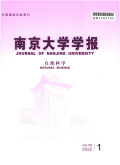南京大学学报(自然科学版)2024,Vol.60Issue(1):12-17,6.DOI:10.13232/j.cnki.jnju.2024.01.002
基于用户长短期历史的多兴趣召回算法
Multi-interest recall algorithm based on users'long and short-term history
摘要
Abstract
With the rapid development of the internet era,users are facing the problem of information overload,and recommendation systems have emerged.Recommendation systems are generally divided into two stages:the recommendation recall stage and the recommendation ranking stage,with the main purpose of the recommendation recall stage being to select a part of the candidate set to reduce the computing load in the recommendation ranking stage.A multi-interest personalized recommendation system learns various users'interest preferences for each user.However,current multi-interest recall algorithms only consider users'short-term history and ignore the rich information contained in users'long-term history.To address this issue,this paper proposes a multi-interest recall algorithm based on users'long and short-term history.The algorithm models users'long and short-term interest preferences through different neural network model structures and uses a gate fusion network to fuse users'long and short-term interest preferences to ultimately obtain users'multiple interest preferences,achieving personalized recommendation recall.The effectiveness of the model is demonstrated through experiments on two public datasets.关键词
推荐系统/序列推荐/多兴趣/长短期历史/图神经网络Key words
recommendation system/sequential recommendation/multi-interest/long and short-term history/graph neural network分类
计算机与自动化引用本文复制引用
张旭,欧中洪,宋美娜..基于用户长短期历史的多兴趣召回算法[J].南京大学学报(自然科学版),2024,60(1):12-17,6.基金项目
国家自然科学基金(62076035) (62076035)

